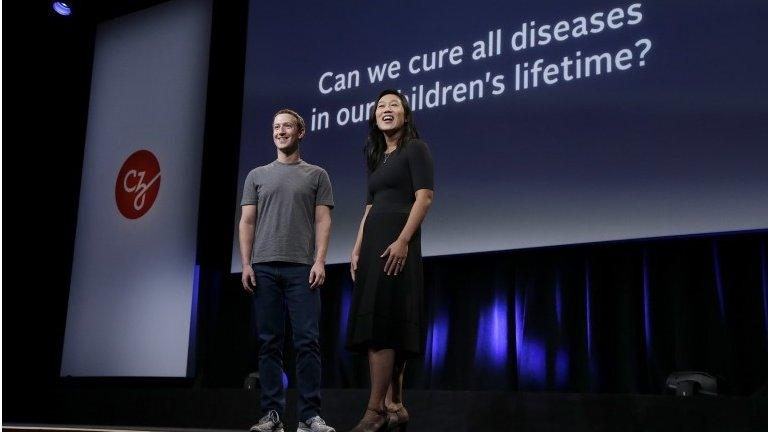Facebook's Mark Zuckerberg lays out his vision
- Published
- comments
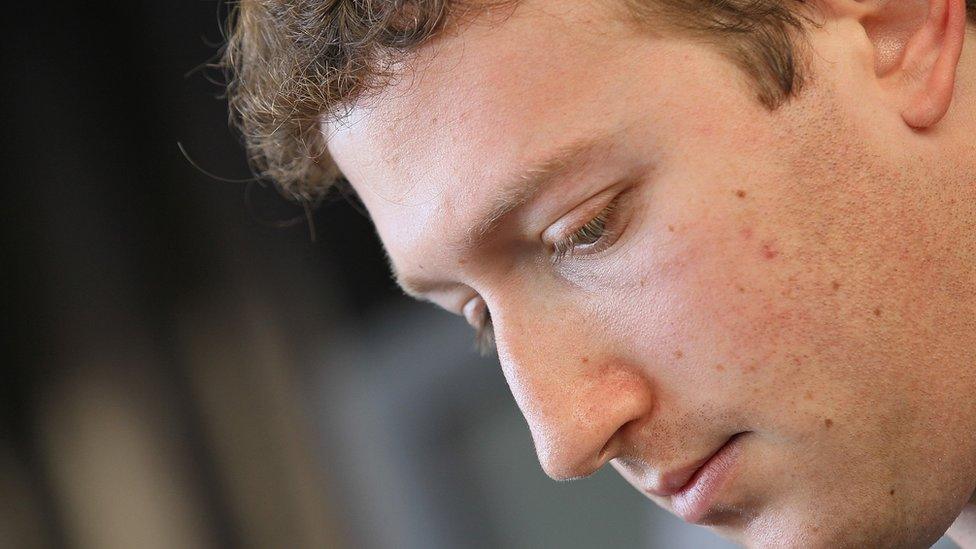
When I first read Mark Zuckerberg's 5,500-word letter to the Facebook community, I was struck by two things.
How far it ranged - over subjects as diverse as globalisation, the people who feel left behind, our spiritual and communitarian well-being - as well as the rather more obvious social media issues of fake news, polarisation and sensationalism.
And secondly, that this letter could be described very fairly as a manifesto, external.
It is not just a statement of where Facebook as a business is going. It is also a statement of the type of world Facebook believes it can help create.
As such, it is political (although carefully crafted to contain no direct reference to the new US president).
And when I interviewed Mr Zuckerberg, the same sense of political purpose was clear. And the same care not to reference Donald Trump.
Fake news
Of course, many will find talk of "connectedness", "community" and "bringing people together" very easy to dismiss.
Here is a very rich man running a very powerful - and often controversial - company, who, one assumes, might find it hard to relate to the ordinary concerns of the ex-steel workers of Monessen, Pennsylvania, or the former pottery workers of Stoke in the west Midlands.
But in an era of technology giants like Facebook which have so much "reach" - 28.5m users in Britain alone - the rebuttal is simple.
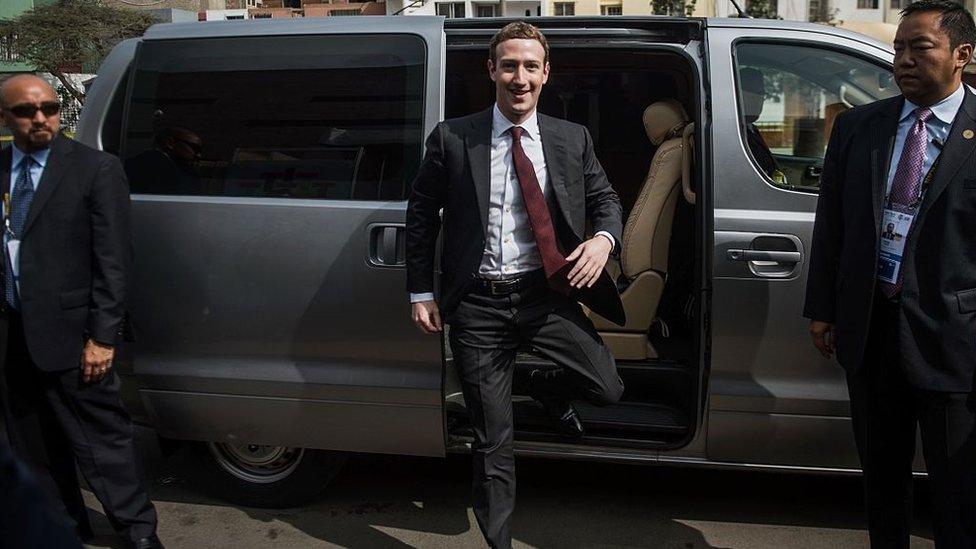
Better that Mark Zuckerberg is public about his vision for his company - agree or disagree with that as you like - than the alternative of corporate silence.
In my interview with him, I did push on taxes paid (or not) and privacy violations. Mr Zuckerberg answered that he wanted Facebook to be a "good corporate citizen".
And on fake news it is clear that Facebook, and other technology giants, have been ill-prepared for the type of editorial controls necessary in an era when millions of people receive their news via their chosen "filter bubble" with little mediation.
Facebook, Google and others have a central philosophy - act quickly to launch new products and then "iterate" if there is a problem.
That has led to mistakes, which Mr Zuckerberg does admit to.
Political ambition?
This is a century when the most powerful are not simply the elected leaders or dictators of the world, but are the corporate leaders who can do so much to influence - and control - what billions of people experience every day.
Speaking publicly about how they view that role is, for many, better than the alternative.
We can then at least test his company, this global behemoth, against the standards Mr Zuckerberg has set himself.
Does the Facebook founder want to be a politician? Particularly given that he sounds so much like one - and I mean that in the broadest sense, not pejoratively.
Not yet, certainly. And maybe not ever.
As the head of a company with 1.86 billion active users a month, he is probably well aware that he has plenty of power already.
- Published28 January 2017
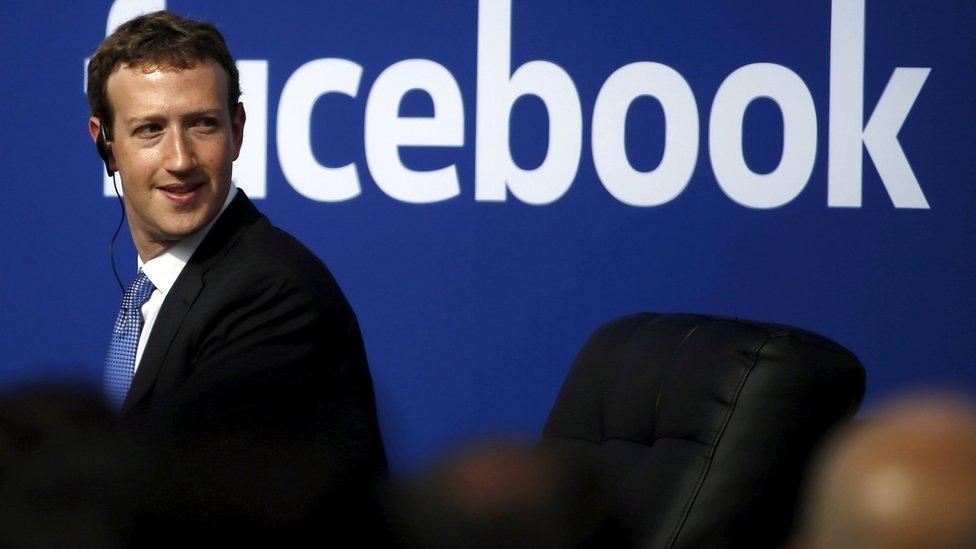
- Published3 January 2017
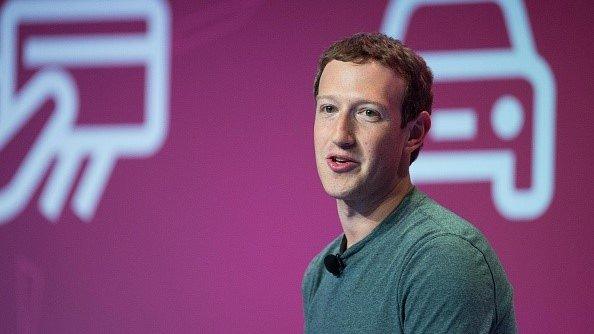
- Published19 November 2016
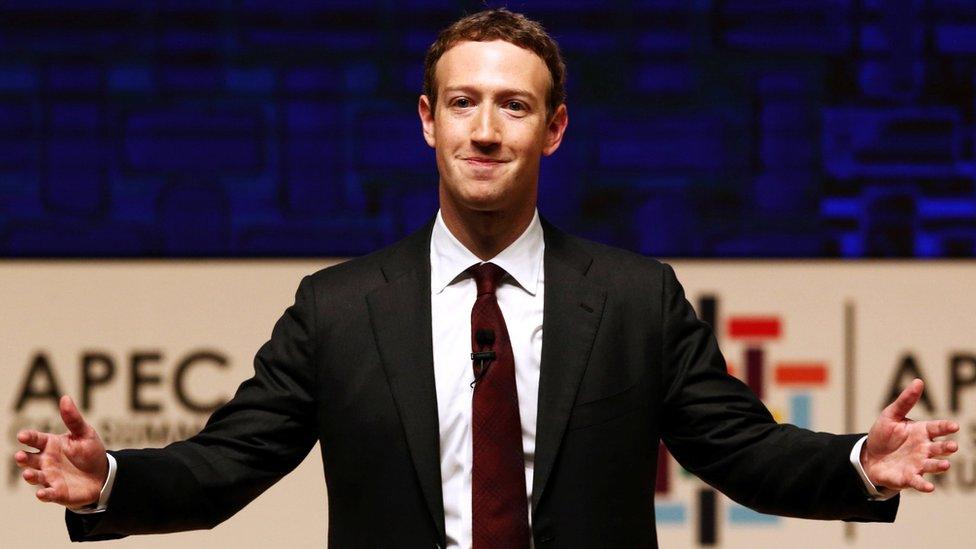
- Published11 November 2016
- Published21 September 2016
